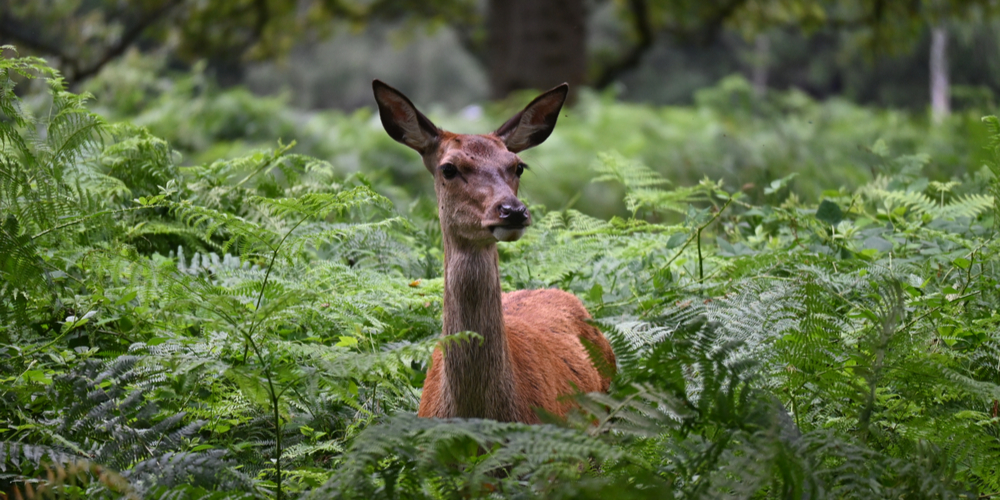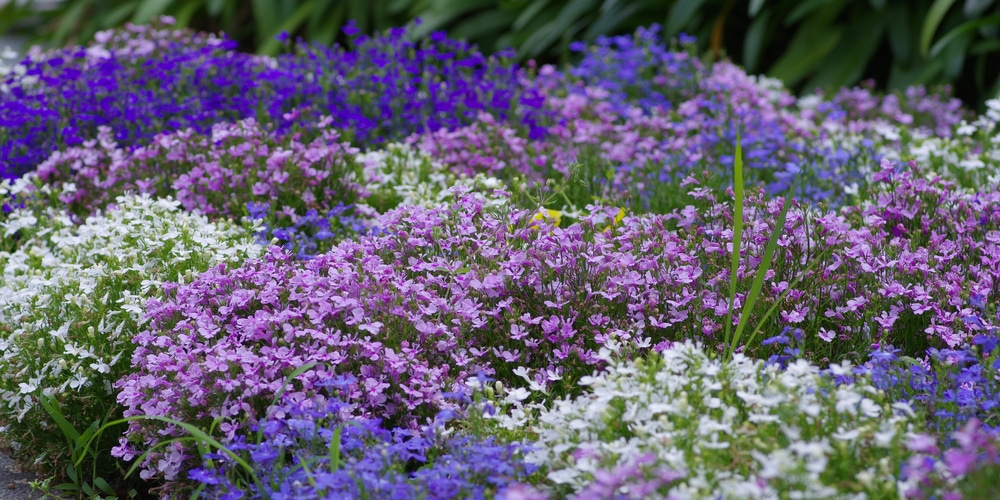If you live near a forest, you should be familiar with some incursions from deer. While that might sound cute, you must know how devastating that can be for your garden. Indeed, deer will mulch on your plants to the point of destroying what you have in your yard.
Unfortunately for many gardeners out there, there is nothing like a deer-resistant plant. A hungry deer won’t care about what you have in your garden: if that’s the only option they have on hand, they will find everything you have in it tempting. That might be more common during a drought or early in the spring, when your garden might look more attractive than anything else.

Quick Answer:
Deer will eat Lobelia, but they don’t like it. Lobelia has a density and bitterness that deer don’t particularly like, which means deer will only eat it if they are desperate for food.
You may want to stock your yard with plants these mammals generally dislike to reduce damages. Some plants are more effective than others because of the strong smell they release.
Other deer-resistant plants work because they have unappealing textures or contain substances deer don’t like. That means that with the right choice of plants, you can keep your garden safe from attacks from these animals.
The idea is to add plants that won’t be these animals’ first choice. With the right combination in your garden, you can have deer choose other food sources (if they have the option to do so).
But do deer like Lobelia plants? Keep reading to find out.
Do Deer Eat Lobelia
To keep things short, Lobelia generally falls under the category of deer-resistant plants. So, if these mammals have options, they won’t munch on them. Most plants that repel deer do so because they have hairy and unappealing textures that deliver a nasty taste when these mammals eat them.
Lobelias have a density and bitterness that deer don’t particularly like. Deer will think twice before eating them once they experimented with what it means to munch on your Lobelias!
The good news is that you can add Lobelia as a hedge plant or around borders to protect your garden from incursions. These plants grow fast, don’t need much attention from your side, and will enrich your garden with bright colors: could you ask for more?
To make a natural garden fence combine Lobelia with Russian Sage. The latter grows about three feet tall and will discourage deer from getting to your garden because of its strong scent. Depending on where you live, you can also consider adding Cleome, a reseeding annual with thorny stems that releases an unappealing odor that will keep these destructive mammals away.
Choose native varieties of Lobelia for better results: they will adapt to your weather conditions and will thrive even without much care from your side. Plus, they will adapt plenty of pollinators, which might not stop deer from munching on your plants, but will keep most pests and harmful insects away. Not to mention that they will contribute to making your garden more lively, especially during the blooming season.
How To Keep Deer Off Your Property
While seeing your first deer in your property might be exciting, when visits become more frequent, you might want to take proper measures to keep these stunning but destructive animals from ruining your garden. Deer will eat just about anything from watermelon, pumpkin, tiger lilies, or even morning glories.
Besides adding so-called deer-resistant plants like Lobelia, you might have to take other actions to ensure you are successful at preventing deer from getting to your property. For starters, you must eliminate plants that attract these animals.
If you have a vegetable garden or fruit trees around your yard, harvest the products as soon as they are ready. Also, keep your garden tidy to avoid deer thinking of your yard as a cozy place to rest. Add tall fences around your garden and consider creating borders with plants such as Lobelia and other strongly-scented species.
If the situation gets hard to manage, consider getting animal repellents or devices that emit sounds that scare deer without harming them. The benefits of investing in such tools are that you will chase other annoying creatures such as birds and small mammals from your property.
If you have a dog, let it spend time in the yard: its urine will scare deer away. Plus, chances are, if your pet spots a deer approaching, it will bark, causing your deer to run away and decide your garden is not so attractive after all.
